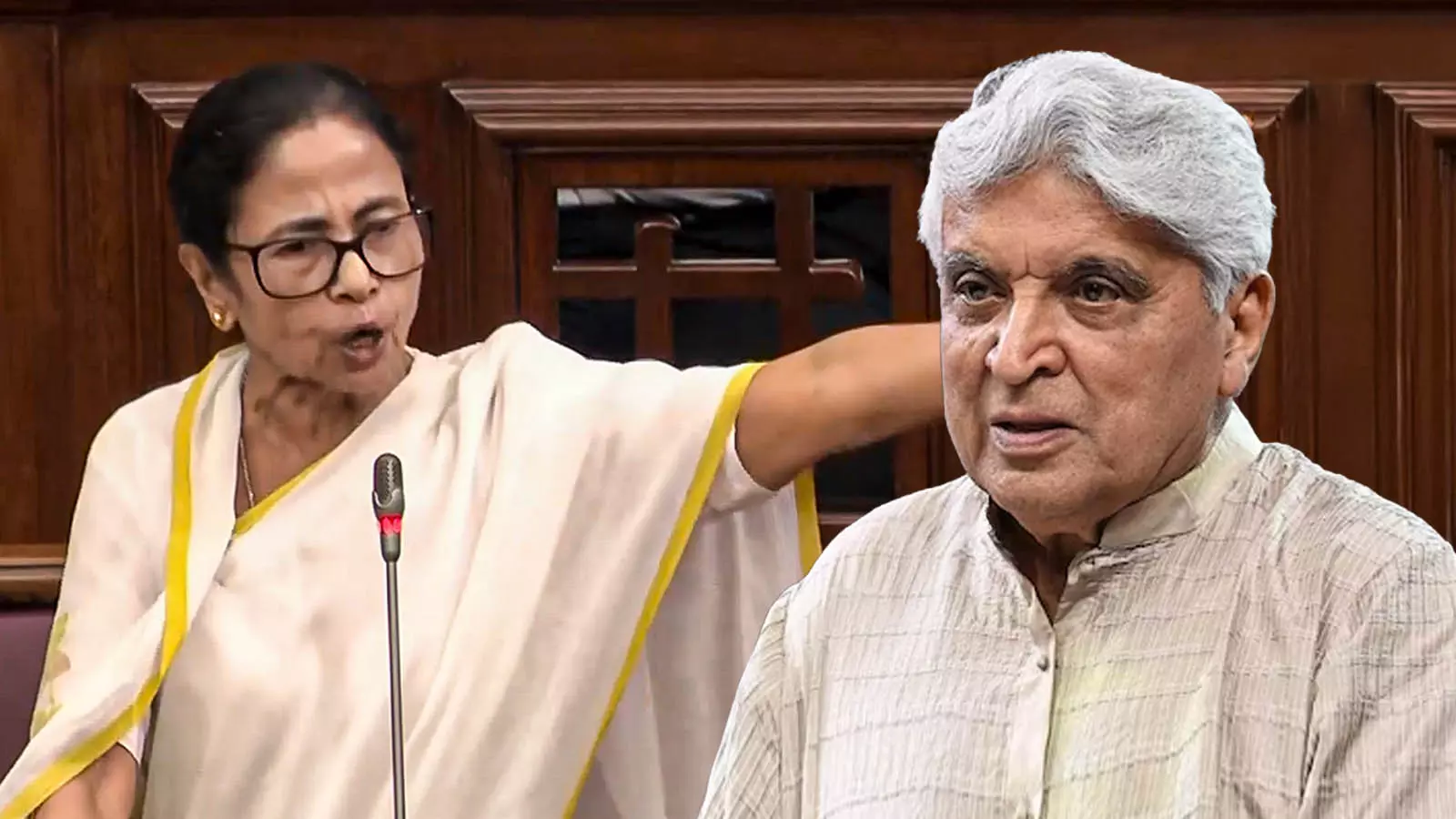
- Home
- India
- World
- Premium
- THE FEDERAL SPECIAL
- Analysis
- States
- Perspective
- Videos
- Sports
- Education
- Entertainment
- Elections
- Features
- Health
- Business
- Series
- In memoriam: Sheikh Mujibur Rahman
- Bishnoi's Men
- NEET TANGLE
- Economy Series
- Earth Day
- Kashmir’s Frozen Turbulence
- India@75
- The legend of Ramjanmabhoomi
- Liberalisation@30
- How to tame a dragon
- Celebrating biodiversity
- Farm Matters
- 50 days of solitude
- Bringing Migrants Home
- Budget 2020
- Jharkhand Votes
- The Federal Investigates
- The Federal Impact
- Vanishing Sand
- Gandhi @ 150
- Andhra Today
- Field report
- Operation Gulmarg
- Pandemic @1 Mn in India
- The Federal Year-End
- The Zero Year
- Science
- Brand studio
- Newsletter
- Elections 2024
- Events
- Home
- IndiaIndia
- World
- Analysis
- StatesStates
- PerspectivePerspective
- VideosVideos
- Sports
- Education
- Entertainment
- ElectionsElections
- Features
- Health
- BusinessBusiness
- Premium
- Loading...
Premium - Events

By surrendering to Islamic fundamentalism, the state actively strengthens the hand of Hindu nationalism, offering BJP an anecdote to fuel its communal narrative
A state once celebrated for its intellectual fervour and syncretic culture is quietly capitulating to illiberal forces. The recent cancellation of Javed Akhtar’s event is not an oversight — it is the price of a political deal that trades free speech for power, and its consequences are eroding the very soul of Bengal.
There is a silence descending over the City of Joy. It is not the quiet of peace, but the silence of enforced conformity. It is the sound of a microphone being switched off, of an invitation being rescinded, of a poet’s voice being deemed too dangerous to hear.
More than a cultural misstep
The cowardly “postponement” of an event featuring Akhtar by the West Bengal Urdu Academy is more than a cultural misstep. It is the latest payment on a Faustian bargain made by the state’s political elite, who have traded their secular soul to the devil of fundamentalism in exchange for electoral power.
Also read: 'Animal' makers now hit out at Akhtar; 'nothing goes beyond love for movie', says Ranbir
This transaction has a long history. The ledger opens with the shameful ouster of author Taslima Nasrin in 2007, when the then Left Front government, terrified of street power, sacrificed a writer’s freedom to appease mobs.
Today, the Trinamool Congress government, despite its professed secular credentials, performs the same ritual of surrender. The players have changed; the capitulation is identical. The message to every artist, writer, and thinker is clear: if your ideas disturb the orthodoxy, you are disposable. The state will not protect you; it will silence you.
Communal harmony, perverse lie
The justification offered is always the same: the preservation of “communal harmony.” This is a perverse lie. True harmony is not the absence of conflict achieved through censorship; it is the vibrant, often noisy, coexistence of differing ideas, secured by a state that protects the right to disagree.
The state, in its infinite cowardice, sided with the forces of dogma over the voice of reason. In doing so, it did not protect a community — it betrayed it. It told young, progressive Muslims that their modernising aspirations are less valuable than the wrath of clerics.
What groups like the Jamiat Ulema-e-Hind demand, and what the state acquiesces to, is not harmony but hegemony.
Also read: Javed Akhtar’s X account ‘hacked’; lyricist says ‘totally harmless’ tweet posted
Their threat is simple: Allow us to dictate the limits of discourse, or we will unleash unrest. The government, in yielding, does not preserve peace. It merely rents it, and the price is the intellectual life of the state.
The profound tragedy is that the voice deemed too dangerous to hear was precisely the one Bengal needed to hear.
Honest, internal critique
At a private gathering, away from the cancelled official stage, Akhtar embodied the courageous moderation that is being systematically eradicated from public life. He did what the state refuses to do: he engaged in an honest, internal critique. He debunked the toxic population myth, correctly tying birth rates to economics, not religion.
Also read: Won't let anyone take away people's voting rights till I am alive: Mamata
He challenged the Muslim political leadership, asking why a reformer like Raja Ram Mohan Roy didn't emerge from within its own society.
In a masterful constitutional argument, he corrected AIMIM leader Asaduddin Owaisi, noting that India’s secular framework was built by secular Hindus—an acknowledgement of historical context that neither diminishes minority rights nor excuses majoritarian wrongdoing.
State sides with dogmatic forces
This is the nuanced, self-critical dialogue that is the absolute antidote to fundamentalism. Yet, the state, in its infinite cowardice, sided with the forces of dogma over the voice of reason.
In doing so, it did not protect a community — it betrayed it. It told young, progressive Muslims that their modernising aspirations are less valuable than the wrath of clerics.
Also read: Indian Army dismantling TMC protest stage in Kolkata becomes political flashpoint
It told reformists that their fight for gender justice under a Uniform Civil Code is a battle they must fight alone, against both hardline community leaders and a state that will abandon them at the first sign of pressure.
Liberal Centre crushed
This two-fold betrayal is the engine of extremism. By surrendering to Islamic fundamentalism, the state actively strengthens the hand of Hindu nationalism. It provides the BJP with the perfect anecdote to fuel its narrative: ‘See, they cannot reform. They are all the same.’
The state’s capitulation becomes a gift to the very forces it claims to oppose, creating a vicious cycle where competing fundamentalisms empower each other, and the liberal Centre is crushed in the middle.
Also read: TMC govt’s failure to meet CSS norms gives Centre upper hand in Bengal fund standoff
Bengal stands at a precipice. It can continue to be governed by the veto of the offended, where every event is vetted by mobs and every idea has to pass a religious litmus test. Or it can remember its own history—a history of towering intellectuals and social reformers who fought dogma with reason and tradition with progress.
Does Bengal have the courage?
The silence following the cancellation of Akhtar’s event is deafening. It is the sound of a state forgetting who it is. To break this silence, the political calculus must change.
What groups like the Jamiat Ulema-e-Hind demand, and what the state acquiesces to, is not harmony but hegemony. The government, in yielding, does not preserve peace. It merely rents it, and the price is the intellectual life of the state.
The question for Bengal’s leaders is no longer “How do we appease every group?” but “Will we have the courage to lead?” Until that happens, the silence will only grow, and the soul of Bengal will continue to be the price paid for a fleeting, and false, peace.
Also read: How West Bengal is pushing back against BJP’s Bangladeshi infiltration narrative
The row underscores a dangerous trend in Bengal’s politics: The rise of Islamic fundamentalism as a force that can dictate cultural and intellectual boundaries. Parties across the spectrum, first the Marxists and now the Trinamool Congress, have repeatedly legitimised these groups by accepting their veto power, empowering them to act as gatekeepers of community sentiment.
The ultimate casualty is genuine secularism. By surrendering to one form of extremism to counter another, the state weakens the liberal Centre and fuels a vicious cycle where competing fundamentalisms thrive. The cancelled event is a symbol of this failure—a quiet monument to the voices Bengal’s leaders lack the courage to defend.
(The Federal seeks to present views and opinions from all sides of the spectrum. The information, ideas or opinions in the articles are of the author and do not necessarily reflect the views of The Federal.)


